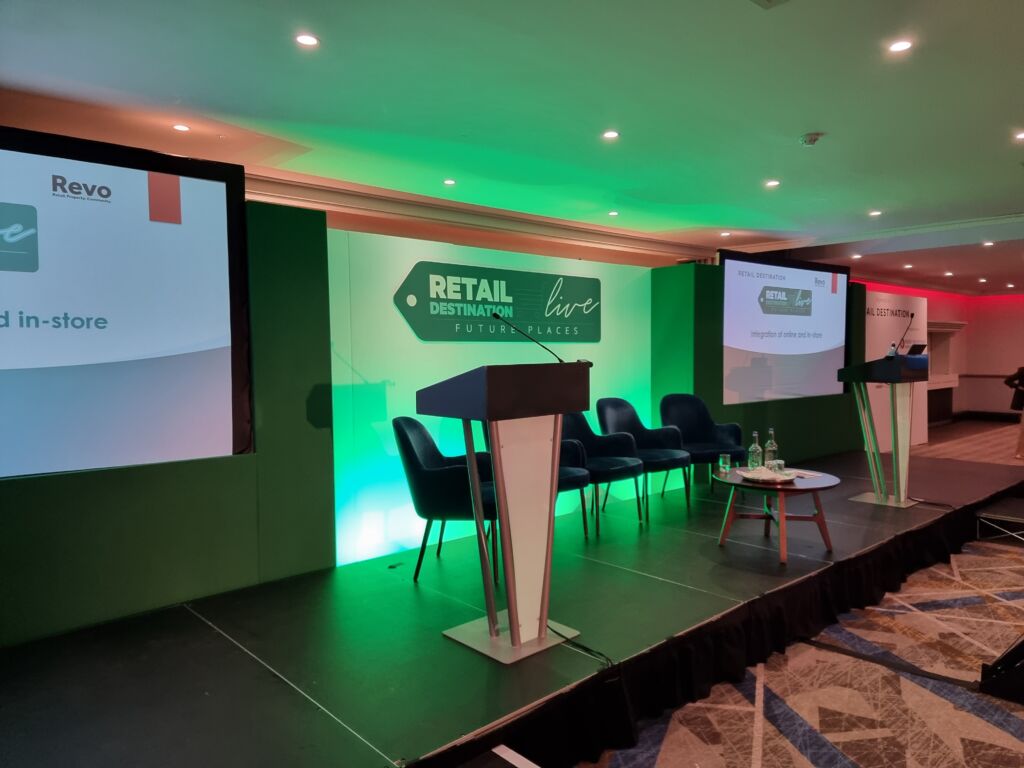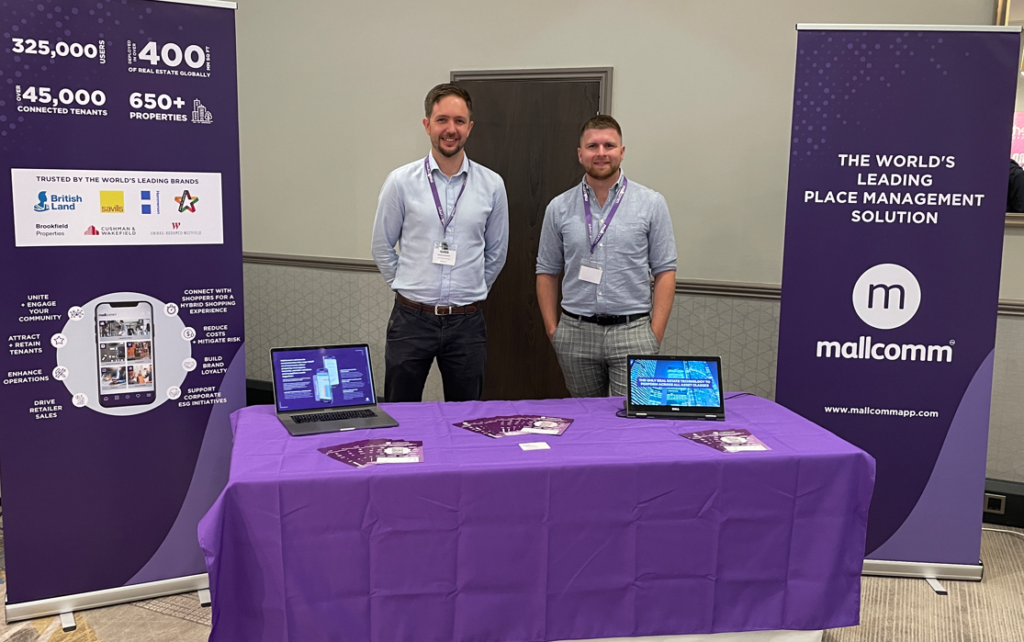
RETAIL DESTINATION LIVE: FOUR KEYTAKEAWAYS
After a Covid-enforced absence, Retail Destination Live made a welcome return last month. The one-day conference shone the spotlight on some of the biggest issues and trends affecting the sector. As an exhibitor, Mallcomm was part of the jam-packed schedule and the discussions on key topics shaping retail.
So, here are our four key takeaways from the event:
1. Security policies need to strengthen
Worryingly, violent incidents are on the rise in the retail sector ranging from staff abuse and anti-social behaviour through to thefts involving weapons. In a challenging economic climate, this is an issue that is likely to get worse.
At the same time, activism is increasing against a backdrop of political volatility and societal change. Larger shopping destinations provide a public platform that may become a target for high-profile protests, adding to the growing challenges faced by security managers.

As these risks increase, so does the need for retail destination operators to take a more proactive approach. It is essential that security plans and policies are up to date, robust and enforceable. Building stronger relationships and communication channels with tenants is also key.
2. Property management is becoming more complex
In a post-Covid world, management challenges haven’t gone away. Now, priorities include reducing the environmental impact of retail destinations and embracing digital transformation to drive time and cost efficiencies.
Amid economic uncertainty, individual centres are also under huge pressure to gather, report on, and present, sales figures. This is another area where digital technology is being adopted with a focus on quick and effective data management and insight.
In addition, market changes are increasing tasks for managers, which is driving the need for more streamlined processes that can enhance productivity across a centre. A shift towards different lease types and durations, for example, is creating larger workloads for accounting teams.

3. Innovation is reshaping internal environments
To respond effectively to customers’ changing demands and market shifts, innovation is essential. This includes finding ways to creatively reinvent redundant retail space while continuing to attract shoppers and support their local communities.
One way this is being achieved is through the introduction of vertical farming in shopping centres. These are spaces designed to grow fruit and vegetables on site, providing shoppers with something new to explore, while delivering sustainability and supply chain benefits.
Shopping centres are also becoming home to pop-up shops that support small, independent businesses, providing their owners with the opportunity to promote their ventures in units available at affordable rates.
4. The future will be more connected
One of the overarching messages about the future of retail was centred on communities. Managed correctly, retail destinations have the potential to become thriving places which can attract and retain both tenants and shoppers for the long term.
Fostering a sense of community is key to this placemaking approach, with a focus on strategies and digital technology that can build strong relationships, loyalty and engagement.
Preparing for change
The Mallcomm team relished the opportunity to hear about the latest trends and catch up with existing clients to listen to their views. The role of digital technology in addressing challenges and adding value should not be underestimated – and we look forward to continuing to work with retail centres across the globe to help them create places which are fit for the future, no matter what it holds.
Discover how some of the world’s leading real estate companies are using Mallcomm to drive digital transformation

